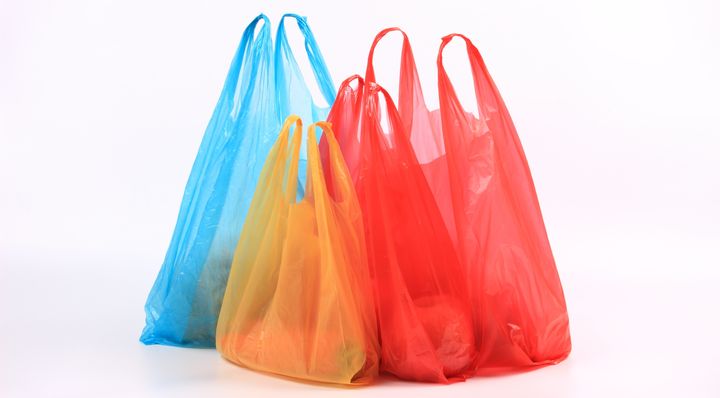
A Senegalese Initiative Empowers Women and Promotes Sustainability by Teaching Them to Knit with Plastic Bags
In a workshop in Saint Louis, northern Senegal, young women from varying backgrounds are taught how to sew and crochet with recycled materials like plastic bags. The workshop, L’atelier de Femmes is owned by La Liane, an organization that provides help for underprivileged women and children through education and vocational training.
These women pick up trashed plastic bags, wash and cut them into strips, then knit them into bags, baskets, keychains and other forms of accessories. Youndou Niang, an employee of the L’atelier says their use of plastic bags to crochet helps with the country’s development as their recycling is a form of waste management.
Senegal, like several other African countries, is choking on plastic waste, most of which are disposable single-use bags, water sachets and packaging. Efforts by the authorities to contain the proliferation of waste by banning the use of plastic bags have not yielded any success. These plastics litter streets, major roads, the country’s coastline and are finally washed into the Atlantic by the wind and waves.
Lacking comprehensive municipal waste management systems, communities conduct their own cleanups periodically, while NGO’s like La Liane do their bit by teaching women to recycle these plastics and empowering them simultaneously. Once the women complete their training, their products are sold and they get a percentage of the profits.
A similar initiative is being conducted in Yola, northeastern Nigeria. Women participating in the Waste to Wealth programme are trained to recycle plastic waste into mats, bags and other accessories. Like their Senegalese counterparts, these women learn the importance of recycling while acquiring a skill that will ultimately earn them money.
Participants told CGTN Africa that the training has helped reduced plastic wastes on the streets and that the money earned has helped improved their livelihood.”Now I can pay my children’s school fees, I can buy food for my family and also help my relatives through this job,” Aishatu Muhammed said. “We are working towards doing the right thing, so whenever we see plastic bags we pick them up; it has become a valuable thing now.”
Innovative initiatives like these are timely as the world battles the harmful proliferation of plastic wastes, seeking ways to decrease it.
According to a report by National Geographic, there are 6.3 billion metric tons of plastic waste and only nine percent of that has been recycled. The vast majority of that is accumulating in landfills or sloughing off in the natural environment as litter. “If present trends continue, by 2050, there will be 12 billion metric tons of plastic in landfills. That amount is 35,000 times as heavy as the Empire State Building,” Laura Parker writes.

